Economy
Nigeria secures aircraft financing deal with Afreximbank
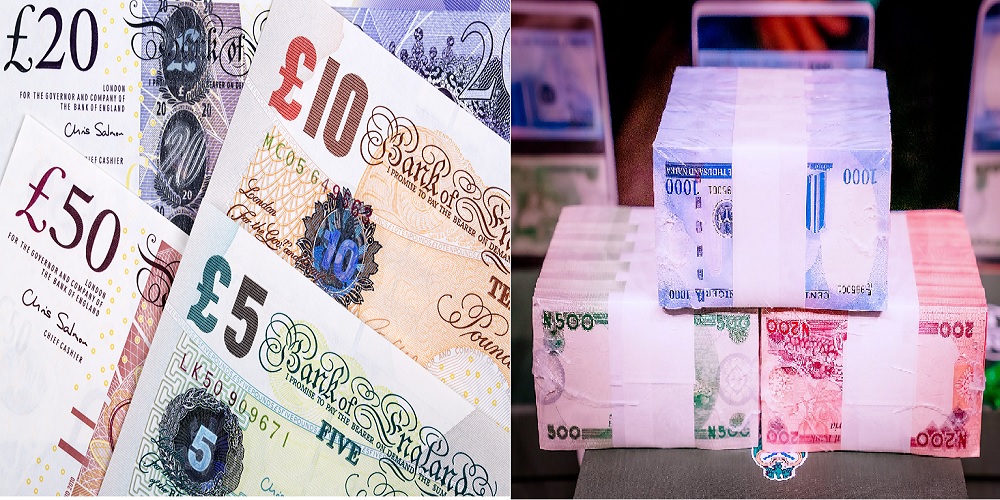
By Francesca Hangeior
A development financing institution, African Export–Import Bank, Afreximbank, has agreed in principle to collaborate with Nigeria on aircraft financing.
Afreximbank, while announcing plans to launch a leasing subsidiary, which will soon take delivery of 25 aircraft to be leased to African airlines, said it will provide Nigerian airlines with access to dry-leased aircraft that would enable them to better service Bilateral Air Service Agreement, BASA, routes and domestic operations.
A statement by Mr Tunde Moshood, special adviser on Media and Communications to the Minister of Aviation and Aerospace Development, Mr Festus Keyamo, said the partnership was achieved during a side meeting held with the Afreximbank team at the four-day Aviation Economic Conference in Dublin, Republic of Ireland.
The statement reads: “A significant milestone in Nigeria’s aviation sector was achieved during a side meeting held with the Afreximbank team at the ongoing Aviation Economic Conference in Dublin, Republic of Ireland. The meeting, facilitated by Boeing’s Senior Director of Finance, Lereece Rose, brought together key stakeholders to discuss aircraft financing opportunities for Nigerian airlines.
“The meeting was attended by the Minister of Aviation and Aerospace Development, Festus Keyamo SAN, who led the Nigerian delegation. The delegation included distinguished members such as the Chairman, Senate Committee on Aviation, Senator Abdulfatai Buhari; Chairman, House Committee on Aviation, Abdullahi Idris Garba, Chairman, Senate Committee on Banking, Insurance, and Other Financial Institutions, Senator Abiru Adetokunbo; Director General of the NCAA, Capt. Chris Najomo; Managing Director of Fidelity Bank, Dr. Nneka Onyeali-Ikpe; COO of Air Peace, Toyin Olajide; CEO of XEJet, Emmanuel Iza; Chairman, ValueJet, Kunle Soname and his Managing Director, Capt. Majekodunmi, and Chairman/CEO of Bellagio Air, Dr. Oludare Akande, among other aviation stakeholders.
“At the meeting, Afreximbank, led by its Director and Global Head of Project and Asset-Based Finance, Helen Brume, agreed in principle to collaborate with Nigeria on aircraft financing. Highlighting the bank’s extensive experience in supporting airlines such as Arik Air, Kenya Airways, and TAG over the past two decades, Brume emphasized the need for robust aviation infrastructure to enhance the competitiveness of African airlines.
“To address this, Afreximbank announced plans to launch a leasing subsidiary, which will soon take delivery of 25 aircraft to be leased to African airlines. This initiative aims to provide Nigerian airlines with access to dry-leased aircraft, enabling them to better service Bilateral Air Service Agreement, BASA, routes and domestic operations.
“Lereece Rose commended the Minister for his efforts in improving Nigeria’s aviation ecosystem, particularly in raising Nigeria’s Cape Town Convention score from 49.5% to 75.5 per cent. This progress underscores the country’s commitment to creating an enabling environment for aircraft financing and leasing.
“The Minister highlighted the critical need for partnerships that would enhance access to aircraft financing for Nigerian operators, facilitating growth and improved service delivery. In response, Afreximbank affirmed its readiness to work with the Nigerian government, signaling a promising future for the country’s aviation industry.
“A committee has been established to follow up on the discussions, ensuring that this partnership materializes into actionable solutions for Nigerian airlines.”
Economy
States face allocation cuts as agency demands N100bn monthly
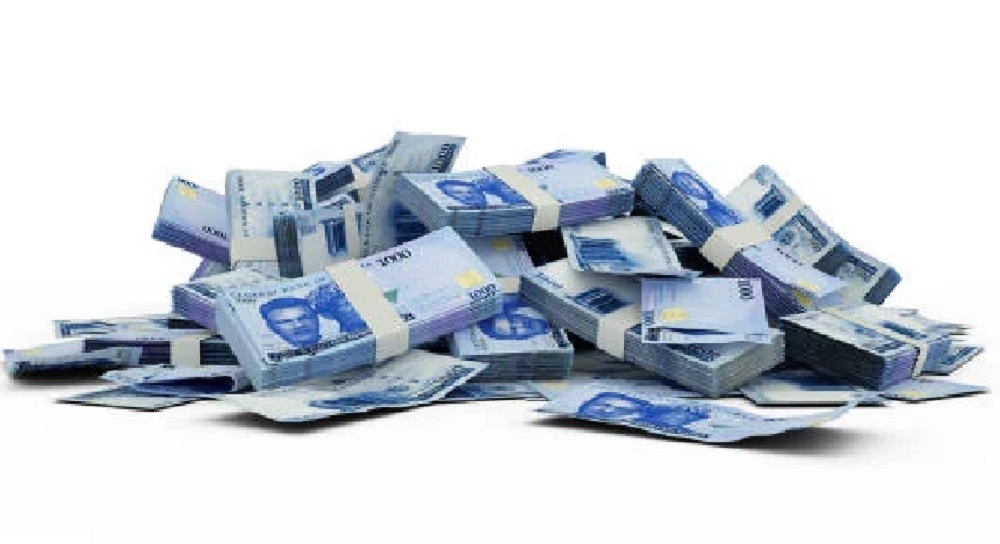
The monthly statutory allocations to state governments from the federation account may decline in the coming months following an official request by the Nigeria Sovereign Investment Authority to boost the nation’s residual funds with the support of N100bn monthly.
The request, which was presented by the Managing Director and Chief Executive Officer of NSIA, Aminu Umar-Sadiq, is aimed at unlocking large-scale investments to drive Nigeria’s economic growth.
He made the request at the March revenue-sharing meeting of the Federation Account Allocation Committee held between April 14 and 15, 2025. Our correspondent obtained a copy of his presentation during the meeting on Friday.
Umar-Sadiq appealed to the committee, which includes state commissioners of finance, to consider and approve the request, with funding proposed to commence from the March FAAC allocation.
The presentation was titled, “Activating Residual Funding for the Nigeria Sovereign Investment Authority – Unlocking Opportunities for Large-Scale Investments to Drive Nigeria’s Economic Growth.”
According to the document, the NSIA is requesting a structured monthly disbursement of N100bn from Residual Funds—revenues in the Federation Account beyond projected hydrocarbon income—to establish a Naira-based investible capital pool.
The move, the authority says, will enhance its capacity to finance critical domestic infrastructure projects.
The MD said, “The funding would position the authority as a leading sovereign wealth fund globally, promoting responsible and strategic investments for Nigeria’s economic development and enhancing its threefold mandate to build a savings base for the country, enhance the development of infrastructure, and provide stabilisation support.”
He explained that residual funds are a legitimate source of funds transferred to the authority, provided that the derivation portion of the revenue allocation formula shall not be included as part of this funding.
Economy
More Nigerians to experience poverty by 2027 – World Bank

The World Bank’s latest Africa’s Pulse report has projects a grim future for Nigeria, with poverty expected to rise by 3.6 percentage points by 2027.
Released during the IMF and World Bank Spring Meetings in Washington, DC, the report cites Nigeria’s reliance on oil, economic fragility, and governance challenges as key drivers.
It highlights the country’s structural economic weaknesses, dependence on oil revenues, and national fragility as key barriers to meaningful poverty reduction.
“Poverty in resource-rich, fragile countries, including large economies like Nigeria and the Democratic Republic of Congo, is projected to increase by 3.6 percentage points between 2022 and 2027,” the report stated.
Despite recent growth in Nigeria’s non-oil sector during the last quarter of 2024, the World Bank warns that this progress is unlikely to translate into widespread poverty alleviation due to ongoing fiscal and institutional challenges.
The report emphasizes that Sub-Saharan Africa remains the world’s poorest region, with an overwhelming 80% of the globe’s 695 million extreme poor residing there in 2024.
Within the region, half of the 560 million extremely poor people were located in just four countries, including Nigeria.
In stark contrast, South Asia accounted for 8% of the world’s extremely poor population, East Asia and the Pacific 2%, the Middle East and North Africa 5%, and Latin America and the Caribbean 3%.
The World Bank attributes the rising poverty in Nigeria and similar economies to weakening oil prices and fragile governance structures, noting: “This follows a well-established pattern whereby resource wealth combined with fragility or conflict is associated with the highest poverty rates, averaging 46% in 2024, which is 13 percentage points higher than in non-fragile, resource-rich countries.”
Meanwhile, non-resource-rich countries in Africa are experiencing stronger economic growth and faster poverty reduction, buoyed by high agricultural commodity prices and more resilient fiscal policies.
To reverse Nigeria’s downward poverty trend, the World Bank recommends reforms that prioritize inclusive economic growth and stronger public financial management.
It calls on the government to focus on “improving fiscal management and building a stronger fiscal contract with citizens to promote inclusive economic development and long-term poverty alleviation.”
Economy
SEE current exchange rate of the Dollar to Naira

What Is the Dollar to Naira Exchange Rate at the Black Market (Aboki FX)?
Here is the Dollar to Naira exchange rate at the parallel market, popularly known as the black market (Aboki fx), for Tuesday, April 23, 2025.
You can exchange your dollars for naira at the following rates:
Black Market Exchange Rate (Lagos – April 23, 2025):
According to sources at the Bureau De Change (BDC), the exchange rate at the Lagos parallel market saw traders buying at ₦1610 and selling at ₦1620 per US dollar.
It’s important to note that the Central Bank of Nigeria (CBN) does not recognize the black market. The CBN advises individuals seeking foreign exchange transactions to do so through their banks.
Dollar to Naira Exchange Rates
Market Type Buying Rate Selling Rate
Black Market ₦1610 ₦1620
CBN Official Rate ₦1591 (Low) ₦1606 (High)
Note: Forex rates vary across dealers and regions, and actual rates may differ from those listed.
Meanwhile, the Nigeria Customs Service (NCS) has announced the seizure of 298 smuggled items worth ₦7.6 billion between January and March 2025. The NCS also disclosed that it generated a total revenue of ₦1.75 trillion in the first quarter of the year.
-
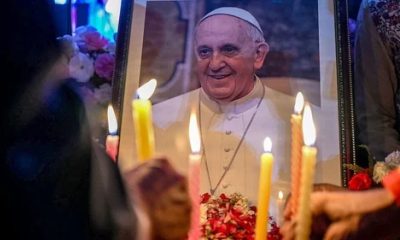
 News24 hours ago
News24 hours agoList of World Leaders that are present in the final funeral of Pope Francis
-

 News20 hours ago
News20 hours agoJust in: Gunmen invade pro-Wike group in Bayelsa
-
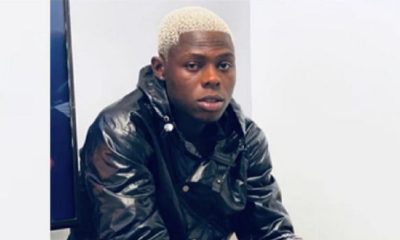
 Entertainment24 hours ago
Entertainment24 hours agoMohbad’s Inquest: Pathologist reveals major findings following 2nd autopsy
-

 Politics5 hours ago
Politics5 hours agoSee list of APC Delta stakeholders holding meeting in Abuja on power sharing formula with Oborevwori
-
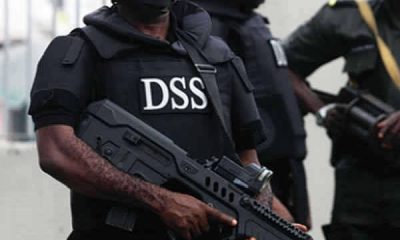
 News4 hours ago
News4 hours agoDSS arrests Army major for planning unrest in Delta
-

 News5 hours ago
News5 hours agoFCT minister, Wike announces new appointments
-

 News22 hours ago
News22 hours agoBaptist Convention to Tinubu: Convene National Security Summit Immediately
-

 Sports20 hours ago
Sports20 hours agoJust in: Chelsea maintains top 4 position after thrashing Everton 1-0

















